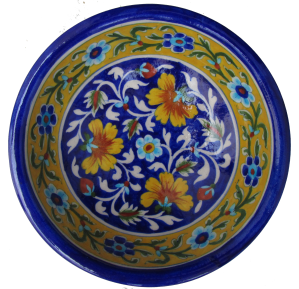
The island nation of Sri Lanka has many surprises, of which the outlandish wooden masks really captivate one’s attention with their big bulging eyes and vibrant colours. On my visit to this beautiful country in the winter month of December, 2014, I was told the tradition of making masks only goes back to 1800s. It is believed that the mask making tradition probably was a result of the influence of similar traditions from the neighbouring Malabar Coast of India. It is possible that the mask dance tradition could have been present in Sri Lanka even before that, but only in the later years became more prominent part of the culture. The Sri Lankan craftsmen did give it a unique form with intricate details and strong colours, incorporating local folk style and characters making it truly Sri Lankan. These masks today have become an important part of the Sri Lankan culture, whether in the form of dance ritual both religious and secular or simply cultural invoking the ancestors and spirits of nature.

The masks are believed to have power to ward off evil spirits and also heal sickness. In broader terms, there are basically three categories of masks. First category is the Raksha Mask, which play an important part in the dance performances of the Kolam Maduwa, a traditional folk play tradition where the characters wear masks. According to the popular legend, Sri Lanka was ruled by an ancient race called as Rakshasas. One of the famous kings, was Ravana of the epic Ramayana. Rakshasas literally meaning devils gave form to twenty-four (24) devils of which only few have survived in the form of characters physically manifested in the masks. Few of the popular Raksha masks are Naga Raksha in the form of cobras (for protection), Garuda or Gurulu Mask, in the form of the mythical composite bird vahana of Lord Vishnu, Mayura Raksha in the form of a peacock (for peace, love and happiness) and Ginijal Raksha in the form of fire (for energy and harmony).

Second category is the Sanni Mask, used for curing specific illness. There are at present eighteen (18) sanni masks. The sanni masks are not very elaborate and are smaller in size. They are generally in the form of a face making grotesque expressions. One of the raksha masks, Maha Kola, comprises the entire pantheon of eighteen sanni devils in one mask tied together by intertwined serpents. This mask is also assigned the same task of cleansing the sick.
The third category is the Kolam Mask used in the kolam play performances. These masks generally depict the characters of the play, which are generally from the folk tales showing secular characters such as kings and queens with elaborate head gears. There are other characters as well, of which one of the beloved depiction is of the serene faced Naga Kanya, a serpent demi god.
The masks are made of soft wood so that it is not only easy to carve but also lighter for the wearer. Kaduru a local soft wood is generally used along with other softer woods such as balsa. Pigments in high quality masks are natural, extracted from tree oils and barks but with increasing demands to be sold as souvenir products to incoming tourists, synthetic paints are also used. The main mask making clusters are along the southwest coastline of Sri Lanka, where one can directly buy from the craftsman.

The text is completely from the knowledge gathered from various sources during the trip, any inaccurate information may be pardoned.
